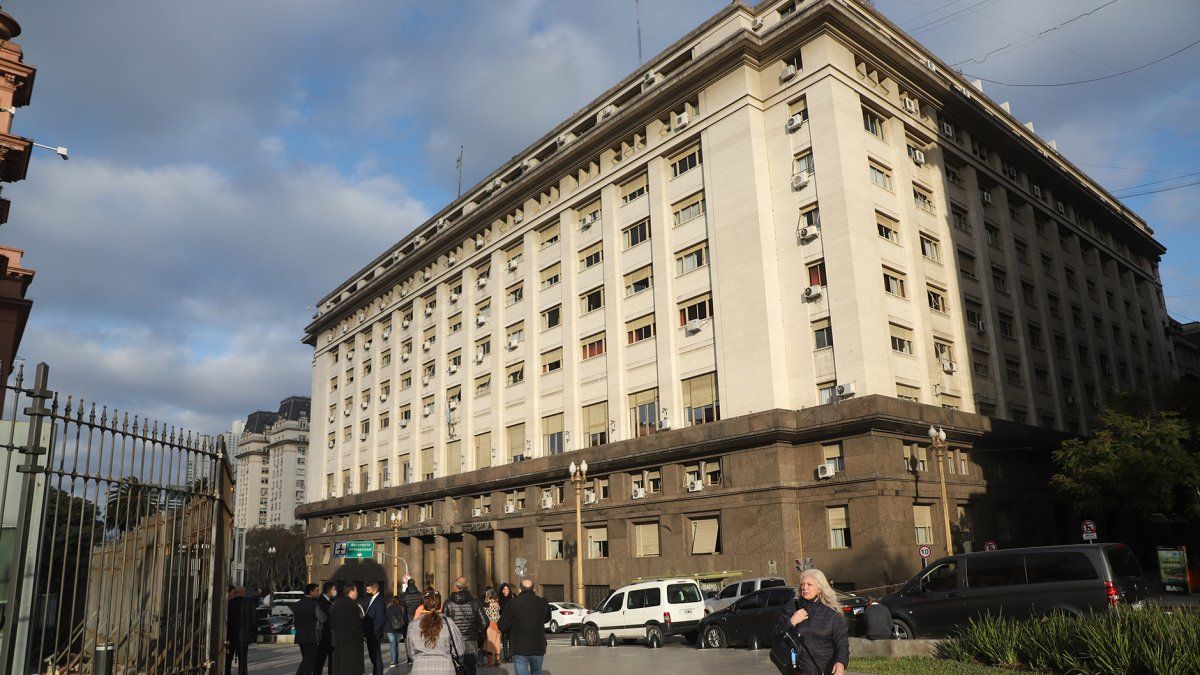With a scenario of sharp drop in revenue of taxes due to lower income from withholdings on exports in the context of the drought, The Ministry of Economy will announce this Monday the result of the National Public Sector for February, which is expected to be in deficit. The point that raises doubts among analysts is the magnitude of the loss. As a reference it can be said that the National Public Administration (APN) had a negative primary result accrued in the second month of $429,410 million, with a growth of 37.1%according to data from the Congressional Budget Office (OPC).
In January there was an extraordinary event as there was a deficit of $203,000 million, something that is seasonally unusual. With this, 46% of the fiscal goal for the first quarter agreed with the IMF was consumed. In general, the first month of the year has the lowest level of deficit or presents positive results, but this time a significant mass of floating debt had to be paid, which was taken in December 2022.
Nadin Arganaraz, Director of the Argentine Institute of Fiscal Analysis (IARAF) He opined that January “usually has a surplus and the remaining 11 months have a deficit.” “For the result of February there is a significant drop in tax revenue. What you have to see is the behavior of spending, ”he explained. The head of the IARAF said that, “if accrued expenses were paid in January, that will not be repeated in February”and then what happened at the beginning of this year “would be an extraordinary event.”
According to the February budget execution report of the OPC, which makes its calculations based on the accrual, in the period a financial deficit of $765,832 million was registered, 74% higher in real terms in relation to the one obtained a year ago. Excluding the payment of interest on the debt, the primary result was negative by $429,410 million, which implied a rise of 37.1%. Meanwhile, the economic result was a deficit of $651,130 million with a real growth of 140%.
by the side of Revenues totaled $1.26 trillion, with a 15.2% decrease in real terms compared to last year, basically caused by the 23.3% annual drop suffered by tax revenues. Spending reached $1.9 trillion and showed growth of 8.4% in real terms. The largest increase was for transport subsidies, with 229% real.
The IMF methodology is based on the so-called “cash basis”, that is, it records the money that comes in and goes out month by month, regardless of when the payment obligation was generated. In this way, Sergio Massa was able to meet last year’s goals, by postponing payments from December to January.
For March, the drop in disbursements is expected to moderate, according to the consultant Analytica, of the economist Ricardo Delgado, in its Expenditure Adjustment Monitor for the second week. “In the trend we are observing a retraction in the adjustment dynamics, compared to last week of 4.4 percentage points and 9.3 from the last week of February”, indicated the consultancy. The year-on-year falls in spending in real terms, with double-digit percentages, seem to have been shelved due to the limitations represented by the liquefaction of the inflation adjustment, the consultant states.
The Government concluded 2022 with a primary deficit of $2 trillion, within the guidelines established in the Extended Facilities Agreement, and by the end of this month it has to drop to $441,000 million. Economy has already consumed $203,000 million.
Source: Ambito




